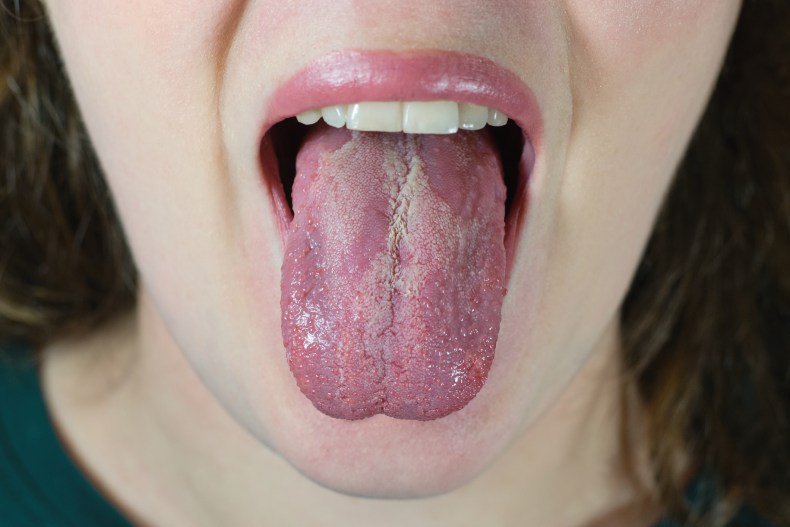

Our bodies possess remarkable intelligence, featuring an intricate internal warning system that communicates through diverse signals and symptoms. These bodily alerts function as crucial indicators of potential health issues. The ability to recognize and understand these warning signs empowers us to proactively address health concerns and intervene early. This article delves into common warning signals and their potential indications.
1. Dry Eyes

Dry eyes manifest when the tear glands struggle to generate an adequate supply of tears or when tears evaporate rapidly. While factors like environmental conditions and extended screen use can induce temporary dryness, persistent dry eyes may signal underlying health issues. Autoimmune conditions, such as Sjögren’s syndrome, can result in diminished tear production and dry eyes. Furthermore, certain medications or a deficiency in vitamin A may contribute to dry eyes. If you consistently experience dry eyes, seeking a thorough evaluation from an eye care professional is advisable.
2. Swollen Ankles

Swollen ankles may stem from several factors, such as extended periods of standing, excessive salt consumption, or specific medications. However, it can also indicate an underlying health concern. Conditions affecting the heart, kidneys, or liver may lead to fluid retention, resulting in ankle swelling. Circulatory issues, including deep vein thrombosis (DVT), can also manifest with swollen ankles. If the swelling persists or is accompanied by other worrisome symptoms, it is advisable to promptly seek medical attention.
3. White Patches on the Tongue

The presence of white patches or coating on the tongue can signal various conditions. One frequent cause is oral thrush, a fungal infection resulting from Candida yeast. It could also be a symptom of leukoplakia, a precancerous condition leading to white patches due to chronic irritation. In some cases, these patches may indicate nutritional deficiencies, particularly in vitamin B12 or iron. If you observe persistent white patches on your tongue, it is advisable to seek evaluation and management from a dentist or healthcare professional.
4. Dandruff and Hair Loss

Dandruff, marked by the shedding of dead skin cells from the scalp, is a prevalent condition influenced by factors like dry skin, oily scalp, or fungal infections. While dandruff alone is not typically a serious health issue, the co-occurrence of excessive hair loss and dandruff could suggest an underlying problem. Conditions such as alopecia areata, hormonal imbalances, or thyroid disorders may contribute to both dandruff and hair loss. If you are facing substantial hair loss or persistent dandruff, seeking guidance from a dermatologist is recommended to identify the root cause and receive suitable treatment.
5. Wrinkled Hands

The natural aging process often results in a reduction of skin elasticity and the development of wrinkles. However, when hands exhibit excessive wrinkling, it could be a signal of dehydration, causing the skin to appear prematurely aged and dry. Additionally, pronounced wrinkles may indicate a deficiency in collagen, a vital component for maintaining skin structure. It is crucial to prioritize hydration and adopt a well-balanced diet to support overall skin health and minimize the impact of aging on the hands.
6. Skin Rashes

Skin rashes can emerge due to various factors, encompassing allergies, infections, autoimmune diseases, or contact with irritants. While numerous rashes are benign and self-resolving, some may indicate underlying health conditions. For example, psoriasis, an autoimmune condition, manifests as red, scaly patches on the skin. Eczema is another chronic skin ailment characterized by inflamed and itchy skin. If you encounter persistent, severe, or unusual rashes, it is advisable to seek medical attention for a thorough diagnosis and appropriate treatment.
7. Bloating

Intermittent bloating can result from factors like overeating, gas, or digestive concerns. Nevertheless, enduring or recurrent bloating might suggest an underlying gastrointestinal issue, including irritable bowel syndrome (IBS), inflammatory bowel disease (IBD), or celiac disease. If bloating is accompanied by additional symptoms like abdominal pain, alterations in bowel habits, or unexplained weight loss, it is prudent to seek evaluation from a healthcare professional.
8.Unexplained Weight Changes

Unexplained weight gain or loss can serve as a crucial indicator of potential health issues. Rapid and unintended weight loss may signal underlying problems such as hyperthyroidism, diabetes, or even cancer. Conversely, unexplained weight gain might be associated with conditions like hypothyroidism, hormonal imbalances, or metabolic disorders. If you observe significant fluctuations in your weight without apparent reasons, it is essential to seek guidance from a healthcare professional for a thorough evaluation.
9.Persistent Fatigue

While occasional tiredness is expected, persistent fatigue that doesn’t alleviate with rest could be a cause for concern, indicating potential health problems. Prolonged fatigue might signal conditions such as anemia, sleep disorders, thyroid abnormalities, or chronic illnesses like fibromyalgia or chronic fatigue syndrome. Identifying the root cause of this fatigue is essential for effective intervention and to avoid potential health complications.
It’s important to note that while these warning signals provide valuable information, symptoms alone are not sufficient for a specific diagnosis. Factors such as medical history, lifestyle, and family history must be considered for accurate diagnosis and treatment. Always consult a qualified healthcare professional if you experience persistent or concerning symptoms.
Our bodies communicate potential health problems through various alerts. Paying attention to these signals and taking them seriously can lead to early detection and prompt medical intervention. Regular health check-ups and open communication with healthcare providers are crucial for maintaining overall well-being. Remember to listen to your body and prioritize your health, as it is the most precious asset you possess.
Symptoms of 12 Serious Diseases and Health Problems
Symptoms of 12 serious diseases and health problems facts
When is a cough “just” a cough, or a headache a symptom to be concerned about? Listed are signs and symptoms that could indicate a serious health condition, and you should see a doctor if you experience any symptoms of concern. Sometimes, a symptom in one part of the body may be a sign of a problem in another part of the body. Moreover, unrelated symptoms that might be minor on their own could be warning signs of a more serious medical disease or condition. Listen to your body, note all symptoms, and share them in detail with your doctor.
- Signs of a heart attack include pain, pressure, squeezing, or feeling of fullness in the center of the chest that lasts more than a few minutes; pain or discomfort in other areas of the upper body; shortness of breath; cold sweat; nausea; or lightheadedness.
- Signs of a stroke include facial drooping, arm weakness, difficulty with speech, rapidly developing dizziness or balance, sudden numbness or weakness, loss of vision, confusion, or severe headache.
- Symptoms of reproductive health problems include bleeding or spotting between periods; itching, burning, or irritation genital area; pain or discomfort during sex; heavy or painful menstrual bleeding; severe pelvic/abdominal pain; unusual vaginal discharge; feeling of fullness in the lower abdomen; and frequent urination or urinary urgency.
- Symptoms of breast problems include nipple discharge, unusual breast tenderness or pain, breast or nipple skin changes, or lump or thickening in or near the breast or in the underarm area.
- Symptoms of lung problems include coughing up blood, shortness of breath, difficulty breathing, chronic cough, repeated bouts of bronchitis or pneumonia, and wheezing.
- Symptoms of the stomach or digestive problems include rectal bleeding, blood in the stool or black stools, changes in bowel habits or not being able to control bowels, constipation, diarrhea, heartburn or acid reflux, or vomiting blood.
- Symptoms of bladder problems include difficult or painful urination, frequent urination, loss of bladder control, blood in urine, waking frequently at night to urinate or wetting the bed at night, or leaking urine.
- Symptoms of skin problems include changes in skin moles, frequent flushing and redness of the face and neck, jaundice, skin lesions that don’t go away or heal, new growths or moles on the skin, and thick, red skin with silvery patches.
- Symptoms of muscle or joint problems include persistent muscle pains and body aches that are persistent, for example, numbness or tingling; pain, tenderness, stiffness, swelling, inflammation, or redness in or around joints; and decreased range of motion or loss of function of any joints or muscles.
- Symptoms of emotional problems include anxiety, depression fatigue, feeling tense, flashbacks and nightmares, disinterest in regular activities, suicidal thoughts, hallucinations, or delusions.
- Symptoms of headache problems (not including everyday tension headaches) include headaches that come on suddenly, “the worst headache of your life,” and headaches associated with severe dizziness, nausea, vomiting, and inability to walk.
- Symptoms of eating or weight problems include extreme thirst, dehydration, excessive hunger, losing weight without trying, binging, vomiting, starvation, preoccupation with food and weight, distorted body image, compulsive exercise, abuse of laxatives or diet pills, and depression.
15 Signs and Symptoms of a Heart Attack
Heart attacks in real life often are not as dramatic as they appear to be in movies. Some early symptoms of a heart attack can happen a month or so before the heart attack.
Before a heart attack, you may experience these symptoms:
- Unusual fatigue/low energy
- Trouble sleeping
- Problems breathing
- Indigestion
- Anxiety
- Back or abdominal pain
During a heart attack, these symptoms may occur:
- Pain, uncomfortable pressure, squeezing, or feeling of fullness in the center of the chest that lasts more than a few minutes, or goes away and comes back
- Pain or discomfort in other areas of the upper body, including the arms, back, neck, jaw, or stomach
- Shortness of breath, with or without chest discomfort
Other symptoms are:
- Breaking out in a cold sweat
- Nausea and/or vomiting,
- Lightheadedness
Women also experience chest pain or discomfort but also are more likely than men to experience
- shortness of breath,
- nausea/vomiting, and
- back or jaw pain.
If you have any of the above symptoms, go to an emergency room right away or call 911.
10 Signs and Symptoms of a Stroke
Signs of a stroke happen suddenly and are different from signs of a heart attack. The American Stroke Association recommends remembering the mnemonic F.A.S.T. to spot a stroke and know when to call 9-1-1 for help:
- Face drooping
- Arm weakness
- Speech difficulty
- Time to call 9-1-1
Other signs and symptoms of stroke to watch for include:
- Sudden or rapidly developing problems with sight
- Sudden or rapidly developing problems with dizziness, balance, and coordination
- Sudden numbness or weakness in the face, arms, or legs
- Sudden confusion or trouble understanding
- Sudden inability to say the right word, incoherent speech, or slurred speech
- Severe headache with no known cause
If you have any of the above symptoms, go to an emergency room right away or call 911.
5 Signs and Symptoms of Breast Disease
A woman has a 1 in 8 chance of developing breast cancer in her lifetime. However, though many breast problems are not cancer-related, they do require prompt evaluation.
Signs and symptoms of breast problems include:
- Nipple discharge (could be milky, yellowish, greenish, or brownish)
- Unusual breast tenderness or pain
- Breast or nipple skin changes, such as ridges, dimpling, pitting, swelling, redness, or scaling
- Lump or thickening in or near the breast or underarm area
- Inverted nipples
If you experience any of these breast problem symptoms, see a healthcare professional for evaluation.
7 Signs and Symptoms of Lung Disease
Lung cancer, chronic obstructive pulmonary disease (COPD), emphysema, asthma, and other diseases of the lungs can be serious and should be addressed.
Symptoms of serious lung problems include:
- Coughing up blood
- Severe wheezing
- Difficulty breathing
If you have any of the above symptoms, go to an emergency room right away or call 911.
Other symptoms of lung problems include:
- Persistent, chronic cough that gets worse over time
- Repeated bouts of bronchitis or pneumonia
- Chronic mucus production (phlegm)
- Chronic chest pain, especially discomfort which gets worse when you inhale or cough
Contact a health-care professional to discuss your symptoms.















,type=downsize&w=1200&resize=1200,0&ssl=1)
















:max_bytes(150000):strip_icc():focal(999x0:1001x2)/catherine-ohara-013026-7-4b5b413a646d4f15a1fd15ac8b933811.jpg?w=1200&resize=1200,0&ssl=1)







